The History Of Nova Scotia Gay Marriage
The history of Nova Scotia gay marriage is a little rocky. Manplay.com explains how the province was ordered by the federal courts to change its laws. In 2004, Nova Scotia became the sixth political jurisdiction in Canada to allow same-sex couples to wed. The province was ordered to change its laws as it did not want to do so willingly. The suit, 'Boutillier et al. v. Canada and Nova Scotia', brought forward by 3 same-sex couples, started the ball rolling on the provinces stance on the matter. The suit was requesting for the provincial and federal governments to issue same-sex marriage licences. It wasn't until September 24, 2004 that Justice Heather Robertson of the Supreme Court ruled that banning marriages was unconstitutional and ordered the province to recognize same-sex unions. This year was a great one for the gay community in Canada, and provinces around the country started to either legalize same-sex marriages, or at least issue same-sex marriage licences. The push-back with the Nova Scotian government came from the Minister of Justice requiring that the terms 'husband and wife' still be used in ceremonies. Obviously this was seen as heterosexist, and with pressures of further legal action by the above couples' in the Boutillier suit, the policy was eventually changed to remove that requirement. Finally, all couples were given equal recognition.
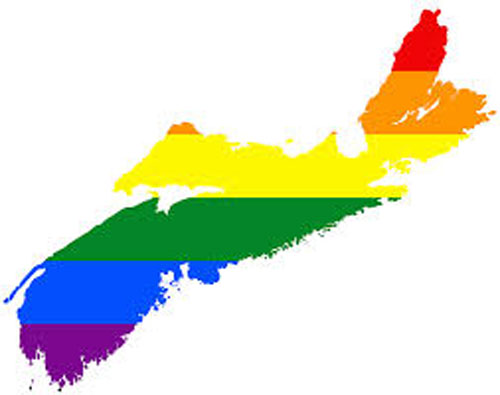
Nova Scotia Gay Marriage Statistics
In 1999 Nova Scotia was one of the first provinces in Canada to partially recognize same-sex couples. A domestic partner registry gave same-sex couples the same legal status as opposite-sex couples in areas of pension, wills, etc. Some same-sex couples decided not to join the registry because they were holding out for the legalization of marriage and felt that a domestic partnership was not good enough, and made them feel like second class citizens. Since same-sex marriages were legalized in the province, the number of same-sex couples is up 46%. The number of same-sex couples getting married has more than tripled, while same-sex common-law relationships are up 10%. Same-sex couples make up 1.3% of all couples in Halifax, and that is tied with Montreal for the highest rate in the country. That number even tops bigger metropolis' like Toronto and Vancouver.
More Information On Nova Scotia Gay Marriage
Learning more about Nova Scotia gay marriage is a great way to understand where the province came from, and where it stands now. The people fought to be recognized, and even through the province was reluctant, it eventually made room for same-sex couples. Now that the federal government has passed legislation to legalize same-sex unions across the country, same-sex couples feel even more at home.
Same Sex Marriage Information
Read more about gay marriage stats from across the province.
The Legalization Of Gay Marriage
The legalization of gay marriage in Nova Scotia is a time that same-sex couples will forever be grateful for. Read about the steps the province took to get there.
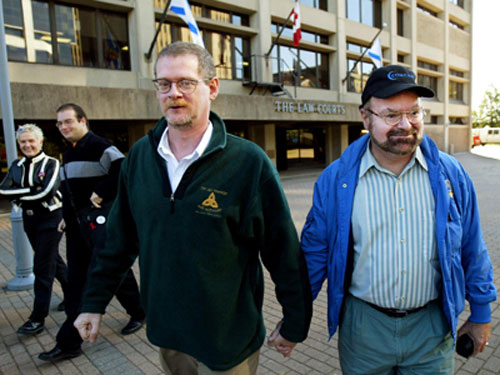
Links To Gay Marriage Sites
If you want to make the most out of your gay marriage experience in Nova Scotia, there is plenty to see and do. From places to visit to a check list of must do's for the gay community, check out all that the province has to offer.
Gay Marriage Vendors
Find the gay marriage vendors that will help make your special day the best that it can be. When you're ready to make it official, there are tons of people that want to make your dreams come true. Get to know the vendors that will take care of you on your special day.
The Current & Future Status Of Nova Scotia Gay Marriage
When same-sex marriage was awarded to the province, the gay community was beyond happy. Eventually the excitement wore off and same-sex couples began to feel like part of the community. The numbers show that although there was an increase in gay couples racing to the alter in 2004, by 2014 the numbers had slowed right down. At the end of the day, couples are couples regardless of gender and marriage is still a big time commitment. Couples aren't getting married just because they can, they are getting married because they are ready. Same-sex couples were also awarded the right to adopt, and when same-sex was legalized, there was an increase in the number of same-sex families adopting. Years later, some of those families have fallen apart and single family homes are increasing in certain parts of the province. It's sad to say that when you alienate a group of people for so long and then give them the rights they've always dreamed of, sometimes things can get out of control. That may have been the case for Nova Scotian citizens.
The future of Nova Scotia gay marriage is a more sensible one now that things have settled down. Gay couples no longer fear their rights being taken away, and know that they can make the same decisions as the rest of the country. There's no need to rush to the altar, and same-sex couples can rest easy. There was a time when being gay meant having to hide and keep secrets, so when it was no longer considered taboo by old age thinkers, the gay community wanted to show up and be seen. After that initial excitement of finally being treated equally wore off, gay couples now concentrate on being themselves, and no longer having anything to prove.

Your Role With Nova Scotia Gay Marriage
The role of any same-sex couple in Nova Scotia now is to be true to who they are and what they want. No longer does the government dictate the steps of your relationship, marriage, or family. It is now up to the couple to decide what they want and when they want it. Same-sex couples no longer need permission to be themselves and do everything that any other couple can do. There's a sense of peace that comes with going at your own pace and no longer looking for validation. Gay couples felt like second class citizens for centuries and now are able to be open and honest about who they are and what they want. Understandably, this caused a major influx in marriage when it was finally considered legal, and some same-sex couples took it too far to prove a point. There are thousands of couples who got married at the time of legalization and are still blissfully married today, but there are a few that had maybe jumped the gun.
It's okay to recognize this as a province, and as a country, to see the magnitude of the problem before same-sex marriage was legalized. When couples felt it so urgently to wed, there was an unnecessary barrier that made them feel the need to rush. Knowing that things have calmed down now and same-sex couples no longer need to rush has taken pressure off of so much of the gay community. Starting a life with someone, and even a family, is a huge decision and shouldn't be made based on a new law. The new law definitely makes it easier and less stressful, but the foundational decision still lays in what's right or wrong for the individuals. Finally, same-sex couples in Nova Scotia are seeing that there's no need to rush and that the choice will always be there to be made. There are no time limits anymore, there is no more urgency to get things done quickly, and the law will no longer revert back to the days of repression. Moving forward, all couples are created equal and no one can take that away from anyone. Thankfully, the country saw the importance of equality and since the laws have changed, has been working on integrating those that felt oppressed for so long into the community. It was never a fair feeling, and hasn't been easy to mend, but things are slowly starting to align.
There may have been years where same-sex couples were overwhelmed with so much emotion that the sense of urgency was hard to overcome. With the support of the government and the community, this sense of urgency has levelled out to some degree. There will always be people who need time to adjust to a new way of life, and sometimes what comes with that is a need to rush. In time, same-sex couples will feel like they can take as much time as they need to make the decision to marry.
It has been just over 10 years since gay marriage was legalized, and is still very much a brand new feeling, and a brand new way of life. Communities are entitled to an adjustment period, and sometimes that means that things won't go as planned. Once the adjustment period is over, all couples in Nova Scotia can breathe easy and feel comfortable knowing that things have changed for the better and will continue to do so.

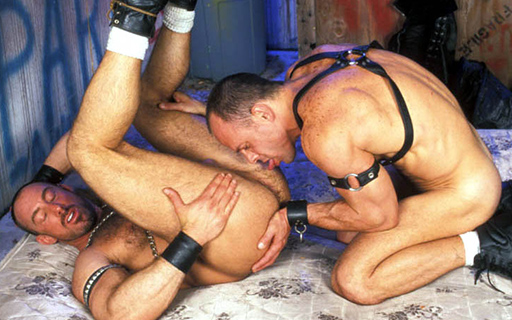






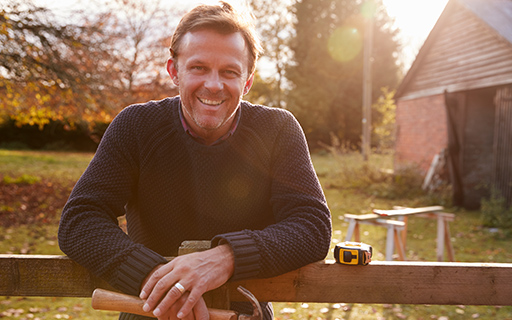







































































































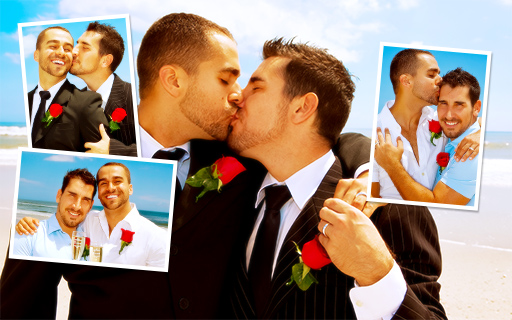

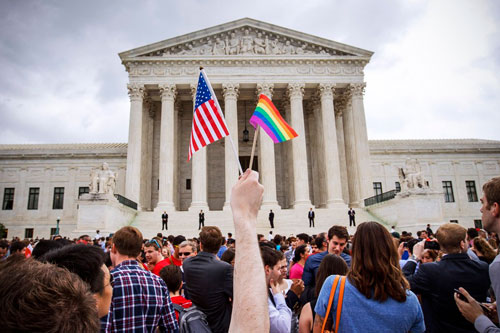
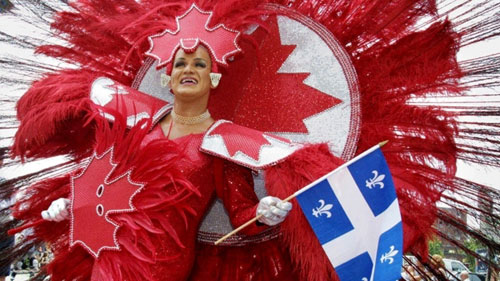






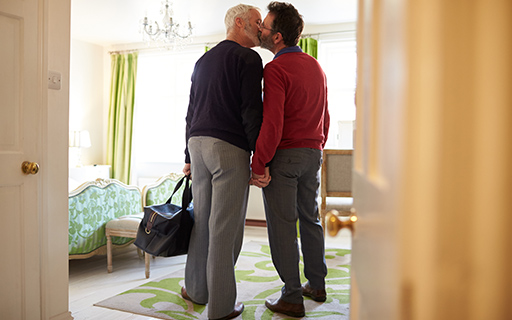

Comments